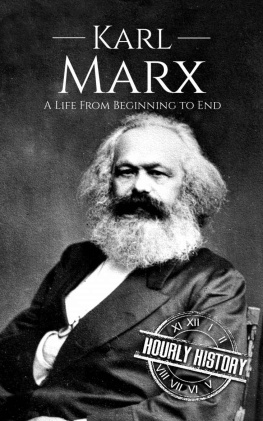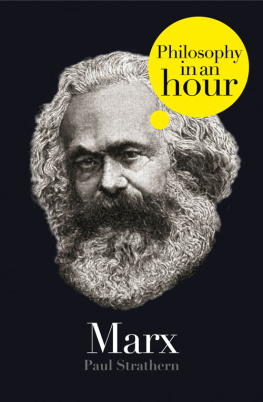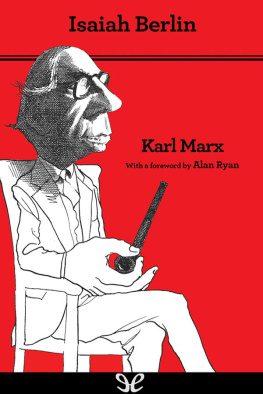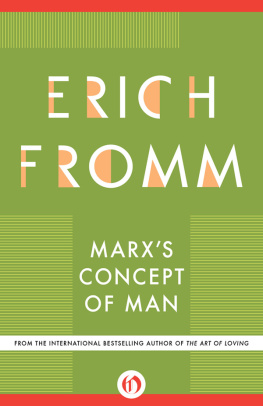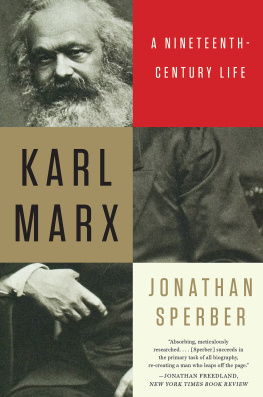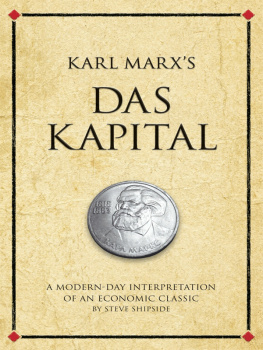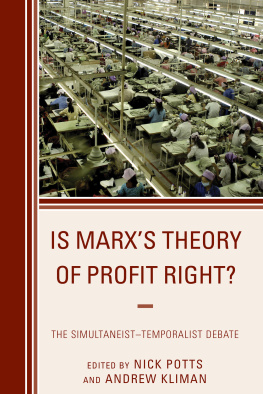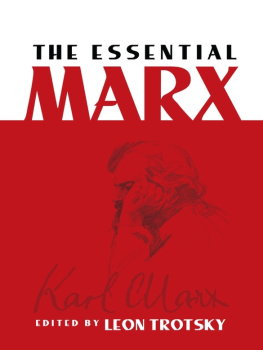THE MARX HE KNEW
I
The pale, yellow light of the waning day streamed through the dusty window panes of the little cigar shop, and across the bench where old Hans Fritzsche worked and hummed the melody of Der Freiheit the while.
The Young Comrade who sat in the corner upon a three-legged stool seemed not to hear the humming. His eyes were fixed upon a large photograph of a man which hung in a massive oak frame above the bench where Old Hans rolled cigars into shape. The photograph was old and faded, and the written inscription beneath it was scarcely legible. The gaze of the Young Comrade was wistful and reverent.
"Tell me about him, Hans," he said at last.
Old Hans stopped humming and looked at the Young Comrade. Then his eyes wandered to the portrait and rested upon it in a gaze that was likewise full of tender reverence.
Neither spoke again for several seconds and only the monotonous ticking of the clock upon the wall broke the oppressive silence.
"Ach! he was a wonderful man, my comrade," said Old Hans at length.
"Yes, yes, he was a wonderful manone of the most wonderful men that ever lived," responded the Young Comrade in a voice that was vibrant with religious enthusiasm.
Both were silent again for a moment and then the Young Comrade continued: "Yes, Marx was a wonderful man, Hans. And you knew himsaw him smileheard him speakclasped his handcalled him comrade and friend!"
"Aye, many times, many times," answered Old Hans, nodding. "Hundreds of times did we smoke and drink togetherme and him."
"Ah, that was a glorious privilege, Hans," said the Young Comrade fervently. "To hear him speak and touch his handthe hand that wrote such great truths for the poor working peopleI would have gladly died, Hans. Why, even when I touch your hand now, and think that it held his hand so often, I feel bigstronginspired."
"Ach, but my poor old hand is nothing," answered Old Hans with a deprecating smile. "Touching the hand of such a man matters nothing at all, for genius is not contagious like the smallpox," he added.
"But tell me about him, Hans," pleaded the Young Comrade again. "Tell me how he looked and spoketell me everything."
"Well, you see, we played together as boys in the Old Country, in Treves. Many a time did we fight then! Once he punched my eye and made it swell up so that I could hardly see at all, but I punched his nose and made it bleed likewell, like a pig."
"What! you made him bleed?"
"Ach! that was not much; all boys fight so."
"Well?"
"My father was a shoemaker, you see, and we lived not far away from where Karl's people lived. Many a time my father sent me to their houseon the Bruckergrassewith mended shoes. Then I would see Karl, who was just as big as I was, but not so old by a year. Such a fine boy! Curly-headed he was, and fatlike a little barrel almost.
"So, when I took the shoes sometimes I would stop and play with him a bitplay with Karl and the girls. He was always playing with girlswith his sister, Sophie, and little Jenny von Westphalen.
"Sometimes I liked it not soplaying with girls. They were older than we boys and wanted everything to go their way, and I liked not that girls should boss boys. So once I teased him about ittold him that he was a baby to play with girls. Then it was that we fought and he gave me a black eye and I gave him a bloody nose in return.
"Sometimes the Old Man, Karl's father, would come into my father's shop and stay a long while chatting. He was a lawyer and father only a shoemaker; he was quite rich, while father was poor, terribly poor. But it made no difference to Herr Marx. He would chat with father by the hour.
"You see, he was born a Jew, butbefore Karl was bornhe turned Christian. Father had done the same thing, years before I was born. Why he did it father would never tell me, but once I heard him and Heinrich Marxthat was the name of Karl's fathertalking about it, so I got a pretty good idea of the reason.
"'Of course, I am not a believer in the Christian doctrines, friend Wilhelm.' he said to my father. 'I don't believe that Jesus was God, nor that he was a Messiah from God. But I do believe in a Godin one God and no more.
"'And I'm not so dishonorable as to have become a Christian, and to have had my children baptized as Christians, simply to help me in my profession,' he said. 'Some of our Hebrew friends have said that, but it is not true at all. As I see it, friend Wilhelm, Judaism is too narrow, too conservative. Christianity makes for breadth, for culture, for freedom. And it is keeping to ourselves, a people set apart, which makes us Jews hated and despised, strangers in the land. To become one with all our fellow citizens, to break down the walls of separation, is what we need to aim at. That is why I forsook Judaism, Wilhelm.'
"From the way that father nodded his head and smiled I could tell, though he said little, that he was the same sort of a Christian."
"But it was about him, the son, that you were speaking, Hans."
"Ach, be patient. Time is more plentiful than money, boy," responded Hans, somewhat testily.
"Well, of course, we went to the same school, and though Karl was younger than me we were in the same class. Such a bright, clever fellow he was! Always through with his lessons before any of the rest of us, he was, and always at the top of the class. And the stories he could tell, lad! Never did I hear such stories. In the playground before school opened we used to get around him and make him tell stories till our hair stood on end."
"And was his temper cheerful and goodwas he well liked?" asked the Young Comrade.
"Liked? He was the favorite of the whole school, teachers and all, my boy. Never was he bad tempered or mean. Nobody ever knew Karl to do a bad thing. But he was full of mischief and good-hearted fun. He loved to play tricks upon other boys, and sometimes upon the teachers, too.
"He could write the funniest verses about people you ever heard in your life, and sometimes all the boys and girls in the school would be shouting his rhymes as they went through the streets. If another boy did anything to him, Karl would write some verses that made the fellow look like a fool, and we would all recite them just to see the poor fellow get mad. Such fun we had then. But, I tell you, we were awfully afraid of Karl's pin-pricking verses!
"Once, I remember well, we had a bad-tempered old teacher. He was a crabbed old fellow, and all the boys got to hate him. Always using the rod, he was. Karl said to me one day as we were going home from school: 'The crooked old sinner! I'll make him wince with some verses before long, Hans,' and then we both laughed till we were sore."




